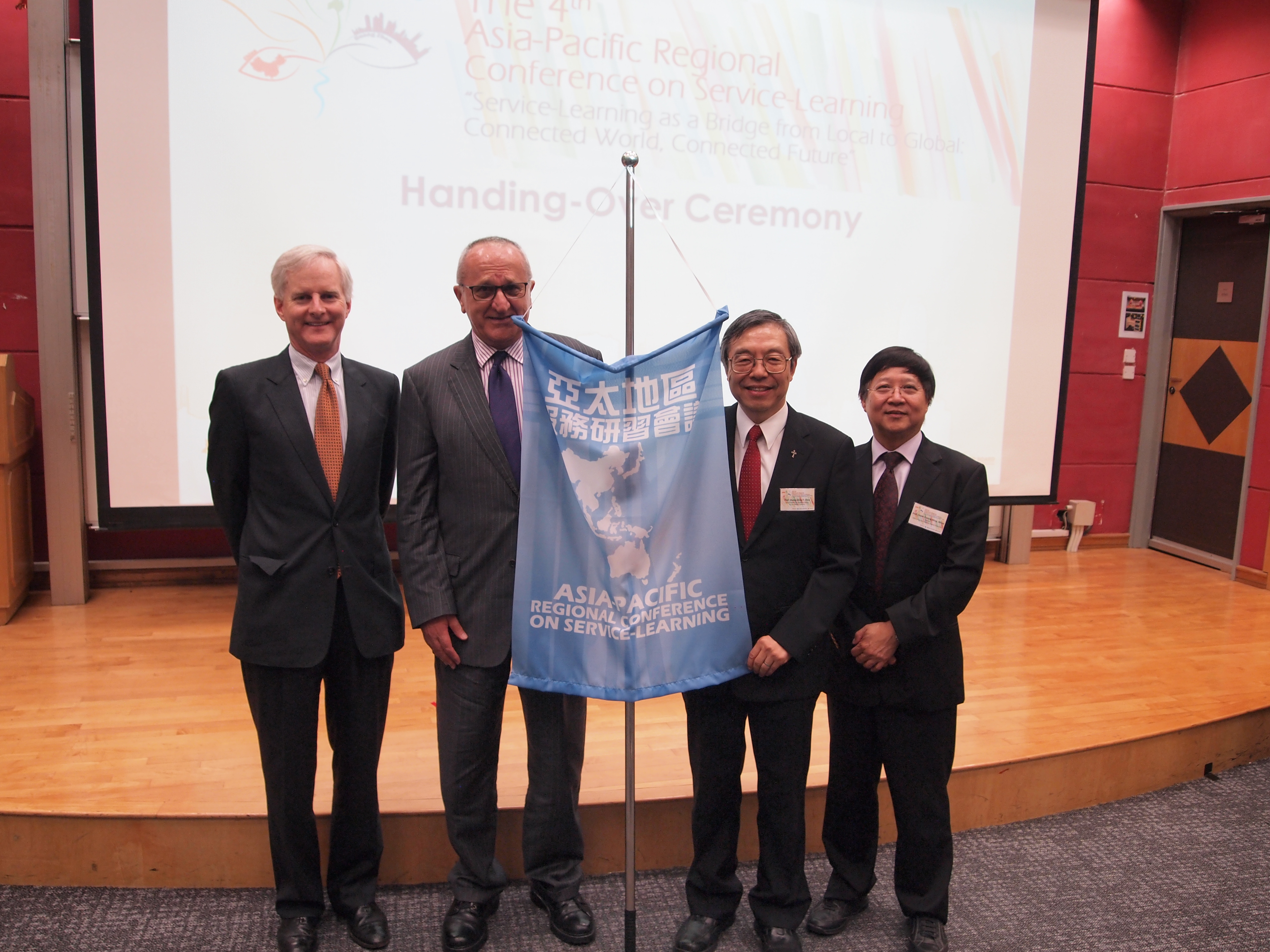Location
MD204, Paul Cardinal Shen Medical Building, Fu Jen University
Start Date
29-5-2015 10:40 AM
End Date
29-5-2015 11:50 AM
Description
In response to the increase and importance of globalization, the Office of Service-Learning (OSL) at Lingnan University (LU) in Hong Kong established the Cross Border Service-Learning Summer Institute (SLSI). The SLSI is part of the Mainland and International Service-Learning Program (MISLP), in which students participate in a 7.5-week and 3 credit-bearing course during the summer months. In 2014, twenty-two students from different countries joined together to study active ageing and social enterprise through guest lectures, research studies, discussions, agency visits and Service-Learning practicums in both Hong Kong and Yunnan, Mainland China.
This paper will focus on Service-Learning and its role in encouraging students' community engagement and promoting students' growth in terms of their whole-person development. The cross-cultural elements in this program, for instance, play a role in shaping students' community engagement and understanding of diverse cultures. The two social enterprises, the one in Yunnan (A Bu) and the one in Hong Kong (BiciLine), served as examples for students of the development of social enterprises in the two different areas. Through their experience in SLSI, students gained interpersonal skills (both hard and soft skills) and were able to interact with teammates from various cultural backgrounds. Moreover, students enhanced their own knowledge of Service-Learning and became global citizens; students, therefore, became culturally and globally aware, raised their global competence and were involved in global engagement. After engaging in this program and becoming more social responsible, students also demonstrated a future commitment to community engagement and a deep understanding of what it means to "serve to learn," and "learn to serve."
All of the cross-cultural elements included in the SLSI program inspire students to think outside the box and create possible solutions to community issues and problems. More and more, the students, involved in the program, are devoting themselves to changing the world through innovative and effective methods that they have learnt from this cross-cultural service-learning program.
Recommended Citation
Cui, B. B. (2015, May). Community engagement through cross-cultural service-learning program. Paper presented at the 5th Asia-Pacific Regional Conference on Service-Learning: Love Journey: Community Engagement through Service-Learning, Fu Jen Catholic University, Taiwan.
Included in
Community engagement through cross-cultural service-learning program
MD204, Paul Cardinal Shen Medical Building, Fu Jen University
In response to the increase and importance of globalization, the Office of Service-Learning (OSL) at Lingnan University (LU) in Hong Kong established the Cross Border Service-Learning Summer Institute (SLSI). The SLSI is part of the Mainland and International Service-Learning Program (MISLP), in which students participate in a 7.5-week and 3 credit-bearing course during the summer months. In 2014, twenty-two students from different countries joined together to study active ageing and social enterprise through guest lectures, research studies, discussions, agency visits and Service-Learning practicums in both Hong Kong and Yunnan, Mainland China.
This paper will focus on Service-Learning and its role in encouraging students' community engagement and promoting students' growth in terms of their whole-person development. The cross-cultural elements in this program, for instance, play a role in shaping students' community engagement and understanding of diverse cultures. The two social enterprises, the one in Yunnan (A Bu) and the one in Hong Kong (BiciLine), served as examples for students of the development of social enterprises in the two different areas. Through their experience in SLSI, students gained interpersonal skills (both hard and soft skills) and were able to interact with teammates from various cultural backgrounds. Moreover, students enhanced their own knowledge of Service-Learning and became global citizens; students, therefore, became culturally and globally aware, raised their global competence and were involved in global engagement. After engaging in this program and becoming more social responsible, students also demonstrated a future commitment to community engagement and a deep understanding of what it means to "serve to learn," and "learn to serve."
All of the cross-cultural elements included in the SLSI program inspire students to think outside the box and create possible solutions to community issues and problems. More and more, the students, involved in the program, are devoting themselves to changing the world through innovative and effective methods that they have learnt from this cross-cultural service-learning program.
